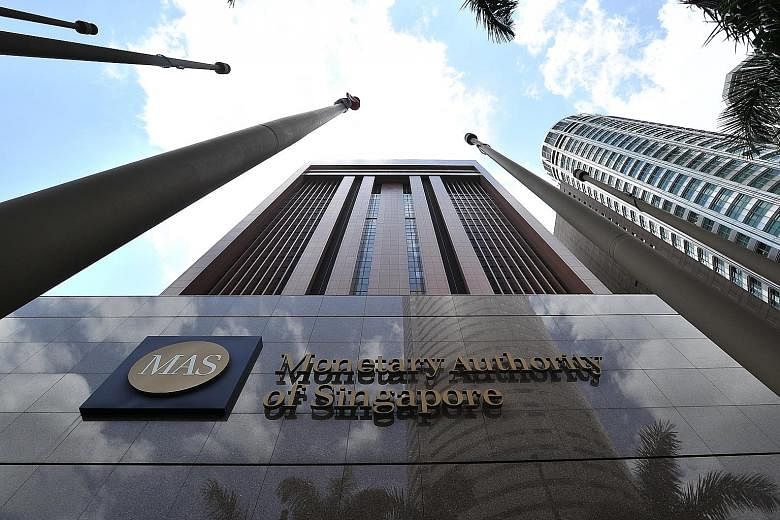Singapore, Hong Kong and Australia will introduce collateral rules for over-the-counter derivatives trading on March 1, part of a global initiative to make transactions in the US$544 trillion (S$771.76 trillion) market safer.
The new guidelines force financial institutions to post cash or bonds to their swap counterparties. They will also apply to variation margins, which cover daily market swings, the Monetary Authority of Singapore, the Hong Kong Monetary Authority (HKMA) and the Australian Prudential Regulation Authority said in separate statements yesterday.
Both Hong Kong and Singapore's rules will be subject to a six-month transition period, their authorities said, while Australia will allow the same for its variation margin requirements, the regulator said.
Hong Kong's timeline takes into account proposed implementation dates in other jurisdictions and industry consultation, according to the city's regulator. The phased-in approaches will ensure that there is no panic come March, said Mr Kishore Ramakrishnan, director of financial services advisory at PricewaterhouseCoopers in Hong Kong.
The European Union (EU) and jurisdictions including Singapore, Switzerland, Hong Kong and Australia missed a Sept 1 deadline to implement the rules for the biggest banks, though the United States, Japan and Canada went ahead. The collateral requirement is one of the bedrocks of global regulatory efforts to reduce risk in the swap market following the 2008 financial crisis.
The authorities have pushed for banks, asset managers and other traders to have more cash, securities and other collateral supporting derivatives deals to protect against the threat of one trader's default spreading risk throughout the financial system.
The rules were agreed at the international level to prevent the industry from exploiting differences in standards in jurisdictions across the world.
"It's good that there's coordination among the Asian regulators, and helps to prevent a mad scramble as we're already facing a logistical challenge in trying to meet US and Europe requirements," said Mr John Ho, Singapore-based head of financial markets, legal at Standard Chartered Bank.
The EU had sparked criticism from the US and Japan earlier this year when it said it would miss the Sept 1 deadline.
The Financial Stability Board, whose members include the US Federal Reserve, the Bank of England and HKMA, called, in August, for urgent action to prevent the market from fragmenting on national lines.
Adding to the confusion is the role of the estimated 78 jurisdictions, including China, with rules that mean that the return of collateral is not guaranteed. While some authorities are looking at exemptions that would free their banks from having to put up money when trading with firms from so-called non-netting jurisdictions, US regulators have not shown signs of tweaking their rules.
The regulations apply to trades directly between buyers and sellers in the over-the-counter swap market. Global regulators estimate that they could eventually require more than €700 billion (S$1.07 trillion) in collateral.
BLOOMBERG

